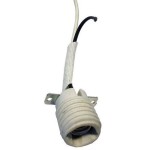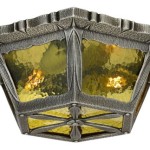Ceiling Fans Without Lights: A Comprehensive Guide
Ceiling fans without lights provide an economical and functional solution for circulating air and enhancing comfort in any room. These fans are an ideal choice for spaces where additional lighting is unnecessary, such as bedrooms, offices, and kitchens. Here are the essential aspects to consider when selecting and installing a ceiling fan without light:
Blade Design
Ceiling fans without lights feature a wide range of blade designs to complement various room aesthetics. From sleek contemporary lines to traditional ornate details, these fans can enhance the overall style of your space. Narrower blades are suitable for smaller rooms, while broader blades provide better airflow in larger areas. Consider the size, shape, and material of the blades to achieve the desired airflow and aesthetic harmony.
Airflow Capacity
The airflow capacity of a ceiling fan is measured in cubic feet per minute (CFM). A higher CFM indicates more powerful airflow, which is essential for larger rooms or areas with high ceilings. For small rooms, a CFM of around 2,000 is sufficient, while larger rooms may require a CFM of 4,000 or more. Consider the room size and height to determine the appropriate CFM for optimal air circulation.
Mounting Options
Ceiling fans without lights come with different mounting options to accommodate various ceiling heights and electrical configurations. Flush mount fans are ideal for low ceilings, providing a compact and sleek installation. Downrod mount fans are suitable for higher ceilings, allowing you to adjust the hanging height for optimal airflow. Angle mount fans are designed for sloped ceilings, ensuring proper fan alignment and airflow direction.
Motor Performance
The motor is the heart of the ceiling fan, and its performance directly impacts airflow and durability. Direct current (DC) motors are more efficient and quieter than alternating current (AC) motors, making them a premium choice. However, AC motors are more affordable and widely available. Consider the operating costs and noise level when selecting the motor type.
Speed Control
Ceiling fans without lights typically offer multiple speed settings to adjust the airflow as needed. Remote control fans provide convenient operation from anywhere in the room, while wall-mounted switches offer a more traditional control method. Some fans feature variable speed motors that allow for precise airflow adjustment.
Additional Features
Modern ceiling fans without lights may come with additional features such as reversible airflow and remote control options. Reversible airflow allows you to change the direction of the airflow seasonally, providing warm air circulation in winter and cooling airflow in summer. Remote controls offer convenience and allow you to adjust fan settings without leaving your seat.
Installation Considerations
Installing a ceiling fan without light requires proper electrical wiring and mounting hardware. It is recommended to consult with a qualified electrician if you are not confident in handling electrical connections. Ensure that the fan is securely mounted to the ceiling and that all electrical wires are properly connected and concealed.

Ceiling Fans Without Lights Lamps Plus

Small Ceiling Fans Without Lights Lamps Plus

Simply The Best Top Ceiling Fans Without Lights By Delmarfans Com

Ceiling Fans Without Lights Small

Simply The Best Top Ceiling Fans Without Lights By Delmarfans Com

Ceiling Fans Without Lights Small

Sofucor 52 Modern Ceiling Fan Without Light Remote Control Noiseless Reverse Airflow For Farmhouse Patio Living Room Com

Hunter Dempsey 52 In Low Profile No Light Indoor Fresh White Ceiling Fan With Remote 59248 The Home Depot

Mid Sized Ceiling Fans Without Lights Lamps Plus

Wingbo 54 In Dc Indoor Brass Ceiling Fan Without Lights And Remote Control 5 Reversible Carved Solid Wood Blades Wbcf Bs04 Bk The Home Depot
Related Posts








